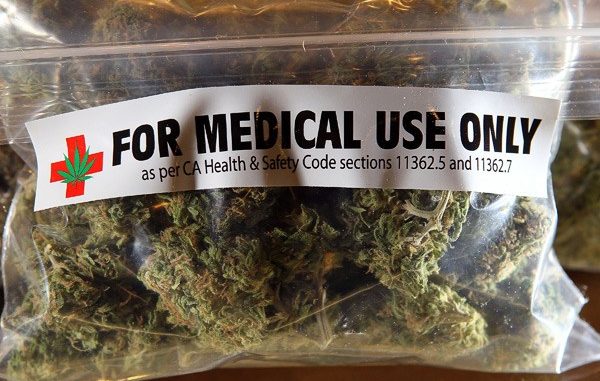
Gun owners who live in states where medical (or recreational) marijuana use has been legalized face a choice: your weed or your gun rights. While these states may now be OK with cannabis use by cancer patients, glaucoma sufferers and others, the feds take a dimmer view.
It’s still a federal crime to possess or use marijuana, no matter what Colorado, Washington, California or any of the other 28 states who have relaxed their laws may say. The laws prohibiting weed are still very much on the books. It’s considered the same as heroine or LSD as far as the Department of Justice is concerned. Until Congress changes the situation — and only they can do that — the DOJ intends to enforce the laws as written.
So when Pennsylvania joined the ranks of states where you can now legally use weed for medicinal purposes, that put gun owners in a quandary. If an individual obtained a medical marijuana card, that fact would be reported to a data base that’s shared by law enforcement statewide. And the info would have turned up on a background check and nixed any potential firearm purchase.
But now Keystone State regulators have had a change of heart.
Pennsylvania will no longer provide the names of medical marijuana patients to law enforcement agencies.
The state Department of Health made the announcement late Friday afternoon in the wake of an Inquirer and Daily News story that called attention to the fact that marijuana patients would not be able to buy firearms.
As is so often the case, legislators and regulators had no idea what the full effects of the law they wrote would be.
Initially, the state’s medical cannabis regulations required the Health Department to post a database of patient names to an online portal called JNET, used by 38,000 law enforcement professionals in the state.
The idea had been to provide some legal protection for patients. If a patient was stopped carrying doctor-recommended marijuana, an officer would have scanned a medical marijuana ID card to learn if the holder was a current participant in the program. In theory, that would have provided the patient with some immunity.
Yes, well, they were apparently blissfully ignorant of the database’s effect on cannabis-using gun owners or buyers.
“In the case that law enforcement needs to verify a patient’s participation in the program, they will rely on the patient’s medical marijuana ID card,” a Health Department spokeswoman said. “While federal law prohibits anyone to purchase a firearm while using medical marijuana, a patient’s status in the program will not be verified during the background check process through JNET.”
OK then. So a Bala Cynwyd resident who’s using cannabis to treat epilepsy symptoms won’t have her name pop up on the verboten list when she wants to buy a new SIG SAUER P365. But she’s hardly out of the legal woods.

The 4473 form that any prospective gun owner is required to complete still asks about any use of marijuana. So unless Pennsylvanians intend to lie on their ATF forms — a felony, by the way — they still won’t be able to legally purchase a gun if they use weed. As the form makes clear, in bold type, no less . . .
Warning: The use or possession of marijuana remains unlawful under Federal law regardless of whether it has been legalized or decriminalized for medicinal or recreational purposes in the state where you reside.
States have called on the feds to change that. But the only people who can do anything about it are the 535 leading lights in Congress and the occupant of the Oval Office. In other words, don’t hold your breath.


It is HIPAA protected information according to most of the sources I’ve read.Kriste
I am not in favor of recreational marijuana but have no issues with medical marijuana; why is it not a HIPPA issue for the state to report anyone using legally prescribed marijuana?